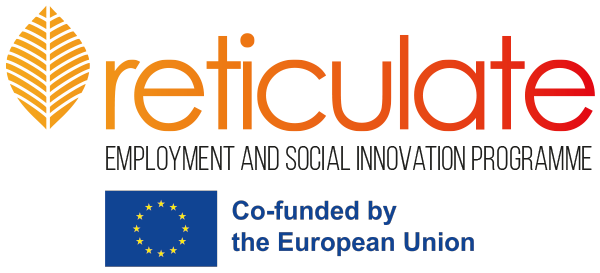
19 Apr Workshop
From experimentation to innovation: the RETICULATE project in the framework of the construction of integrated paths of social inclusion and work in Tuscany
2 March, Livorno – at the S.E.F.A.
On 2 March, a workshop was held in Livorno to discuss and launch experiments in the four areas selected by the project, which will lead to the effective creation of One Stop Shops, i.e. physical places where social, financial and public support services job placement meet and dialogue, for an effective integration of services in the area.

The project partners were hosted at the S.E.F.A. centre, where the Municipality of Livorno provides immediate and temporary reception services for people without accommodation or shelter and offers accommodation for the night and hot meals. The Reticulate project aims to develop the integration of services precisely in favor of homeless people and vulnerable families with dependent minors. The chosen place is therefore a symbol of the aspirations of the project, which during the workshop discussed how to create the One Stop Shop and the integration of the social and work components, or rather the close collaboration between health companies and/or social areas and ARTI, the Tuscan regional agency for employment, which manages the employment centres.
The workshop also had the aim of involving the strategic sectors of the Tuscany Region that are protagonists in the elaboration of social and labor policies, in particular the Welfare and social innovation sector, represented by Alessandro Salvi, manager in charge and by Simone Cappelli, manager of the sector work, who actively contributed to the day’s work.
The complexities related to the integration of services reside in procedures and modes of operation that require substantial changes to allow effective integration of services and the involvement of the regional management level is essential to facilitate the transmission of project results to a higher level of policy.

During the working day work was facilitated by experimentation areas, promoting comparison between the social and labor sectors. The four areas of experimentation involved in the project are Pistoia, Livorno, Lucca and Grosseto.
In the city of Grosseto, the One Stop Shop will be located at the railway station and two further locations have been identified, in Follonica and Arcidosso/Castel Del Piano, in order to guarantee accessibility throughout the province.
In Pistoia, the One Stop Shop is being set up at the Social Secretariat, an easily accessible place already known by the citizens. An additional physical access point is added to the latter, at the Popular Hotel, where it is particularly effective to intercept people who may need the services offered. To these is added a mobile unit capable of reaching the most peripheral areas of the Province.
In Livorno, the One Stop Shop is being set up right at the S.E.F.A. while in the Lucca area there are currently two access points, at the employment centers of Lucca and Altopascio, with the aim of unifying the branches and making them welcoming.
The day’s work allowed us to take stock of the situation with respect to the progress of the project. The territories involved in the activation of the integrated services have shown that they are advancing jointly and the presence of the key sectors of the Tuscany Region confirms the importance of this experimentation, also in the light of past, present and future projects, including the innovations conveyed through additional funds of the PNRR.


